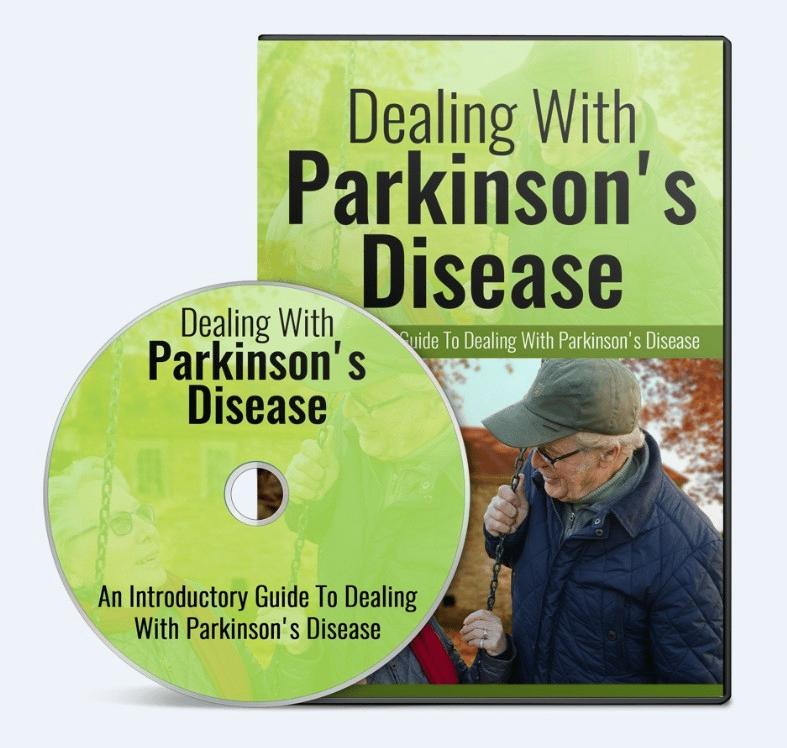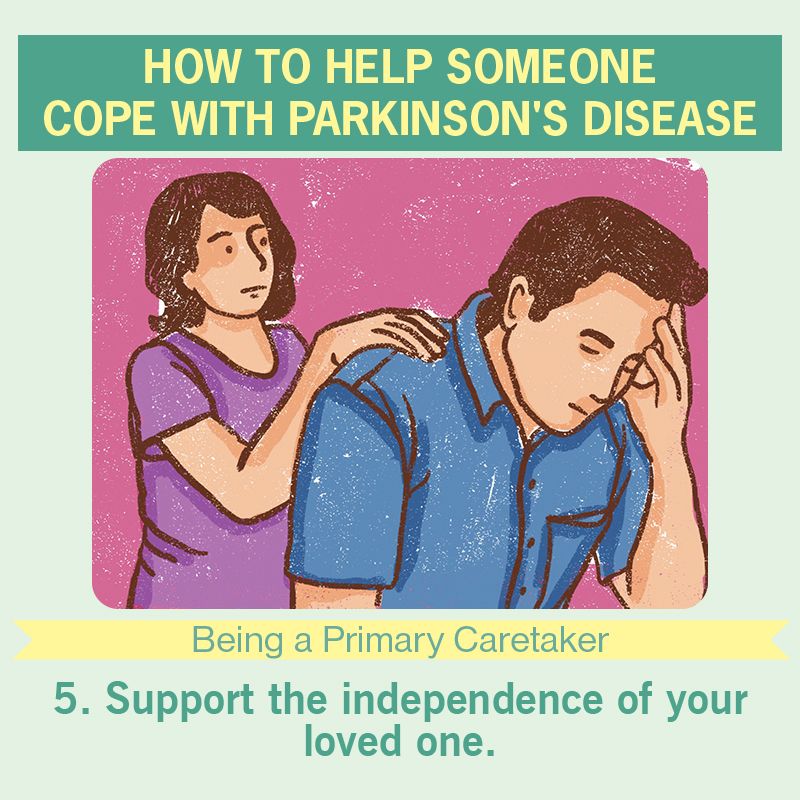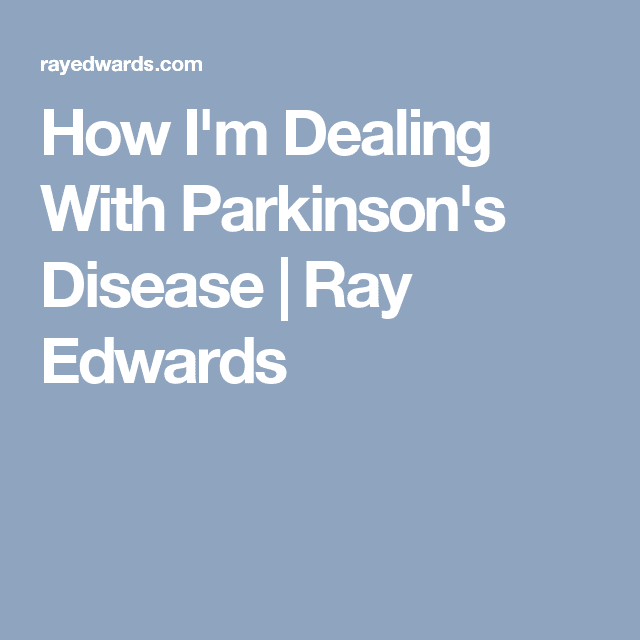How Is Parkinsons Disease Diagnosed
There arent any specific tests to diagnose someone with Parkinsons disease.
Doctors typically make a diagnosis based on the following:
- Medical history
- Blood and lab tests
Sometimes, people who have a known inherited form of Parkinsons disease can take a gene test to determine their risk for developing the disease.
Taking Care Of Business
The Parkinson’s Foundation has developed a thorough guide to getting your household and personal documents organized at www.parkinson.org
- Organize your medical histories
- Keep a journal of medications and dosages
- Organize your personal financial documents
- Insurance and long-term care plans
- Livings wills, durable power of attorney, advanced medical directives
Preparing For Doctor’s Appointments
Patients and their families should always ensure they are prepared for a doctor’s appointment when dealing with Parkinson’s disease. With this in mind, they should note down symptoms, even if they do not seem related, as well as any recent major changes or stresses. Additionally, these notes should include all the medications the patient is taking. This must include natural supplements and vitamins as well.
Patients and their family members should also consider writing down all of the questions they have, no matter how insignificant they may seem. Some things many individuals will want to know about include what tests they will require, treatments being considered, and details on other conditions being dealt with. Many patients will also want more information about Parkinson’s disease. While patients can go alone, it is incredibly helpful to bring a family member or other loved one along for emotional support, especially where questions are concerned. They can fill in any gaps if the patient is unable to do so.
Read Also: Are Essential Tremors Related To Parkinson’s
What Causes Anger And Irritability In Parkinsons
The emotional toll of a Parkinsons diagnosis and the limitations caused by the condition can lead to feelings of frustration, shame, or fear resulting in mood changes like anger and irritability.
However, Parkinsons is also considered a neuropsychiatric condition because the disease itself can cause mood disorders. Parkinsons causes a decrease in dopamine, a neurotransmitter that affects both movement and mood. Low dopamine neuron levels are associated with an increase in depression and anxiety among people with Parkinsons. The disease also causes abnormalities with a protein in the brain called alpha-synuclein. This protein is associated with behavioral disturbances and cognitive impairment in people with Parkinsons.
Dementia and psychoses are also caused by changes in brain chemistry due to Parkisons. These conditions can lead to delusions, hallucinations, paranoia, passage , and agitated behavior. Some Parkinsons medications used to treat depleted dopamine may cause psychosis-like behavior as a side effect.
Behavioral and mood disorders may be treated with antidepressants, selective serotonin reuptake inhibitors, or antipsychotic medications like clozapine, along with mental health counseling.
How Soon After Treatment Will I Feel Better And How Long Will It Take To Recover

The time it takes to recover and see the effects of Parkinson’s disease treatments depends strongly on the type of treatments, the severity of the condition and other factors. Your healthcare provider is the best person to offer more information about what you can expect from treatment. The information they give you can consider any unique factors that might affect what you experience.
Also Check: How To Treat Parkinson’s Hallucinations
Diagnosis Of Parkinsons Disease
There are currently no blood or laboratory tests to diagnose non-genetic cases of Parkinsons. Doctors usually diagnose the disease by taking a persons medical history and performing a neurological examination. If symptoms improve after starting to take medication, its another indicator that the person has Parkinsons.
A number of disorders can cause symptoms similar to those of Parkinsons disease. People with Parkinsons-like symptoms that result from other causes, such as multiple system atrophy and dementia with Lewy bodies, are sometimes said to have parkinsonism. While these disorders initially may be misdiagnosed as Parkinsons, certain medical tests, as well as response to drug treatment, may help to better evaluate the cause. Many other diseases have similar features but require different treatments, so it is important to get an accurate diagnosis as soon as possible.
Coping With A Diagnosis
When you or a family member is diagnosed with Parkinson’s disease , you will experience a range of emotions and go through several stages of adjustment to the disease. As PD progresses and brings new challenges, you will go through many of the emotions and stages of adjustment anew. Each person experiences stages in their own order and at their own pace.
Recommended Reading: Best Exercise Equipment For Parkinson’s
Medications Used For Treating Psychosis
Antipsychotic agents are designed to balance abnormal chemical levels in the brain. Up until the 1990s, the use of antipsychotics in PD was controversial because the drugs used until that time work by reducing excess dopamine. This alleviated psychosis but caused dramatic worsening of PD motor symptoms.Fortunately, medications that are better tolerated by people with PD are now available. Today, there are three antipsychotic medications considered relatively safe for people with PD. They cause limited worsening of PD while treating hallucinations and delusions.
Recommended Reading: Agent Orange Link To Parkinsons
Medications For People With Parkinsons Disease
Symptoms of Parkinsons disease result from the progressive degeneration of nerve cells in the brain and other organs such as the gut, which produce a neurotransmitter called dopamine. This causes a deficiency in the availability of dopamine, which is necessary for smooth and controlled movements.
Medication therapy focuses on maximising the availability of dopamine in the brain. Medication regimes are individually tailored to your specific need. Parkinsons medications fit into one of the following broad categories:
- levodopa dopamine replacement therapy
- dopamine agonists mimic the action of dopamine
- COMT inhibitors used along with levodopa. This medication blocks an enzyme known as COMT to prevent levodopa breaking down in the intestine, allowing more of it to reach the brain
- anticholinergics block the effect of another brain chemical to rebalance its levels with dopamine
- amantadine has anticholinergic properties and improves dopamine transmission
- MAO type B inhibitors prevent the metabolism of dopamine within the brain.
There is no best medication treatment for Parkinsons. Each person has different symptoms, disease progression, lifestyle and physical tolerances. All of these factors will affect the timing, type, dose and combinations of medication.
As the disease progresses, your doctor will need to review and alter your medication program. Its is important to see a neurologist or a doctor who has experience in helping people with Parkinsons disease.
Don’t Miss: Does Cbd Help Parkinson’s Disease
Related Conditions And Causes Of Parkinsons Disease
Many conditions can cause symptoms that are similar to those of Parkinsons disease, including the following:
- Essential tremor
This foundation was founded in 2000 by the actor Michael J. Fox, who received a diagnosis of young-onset Parkinsons disease in 1991. Take a look at Parkinsons 360, the foundations guide for living with Parkinsons. Or if youd like to join a Parkinsons research study, visit the Fox Trial Finder.
With a mission to empower people with Parkinsons, this foundation funds research geared toward improving care and treatment for the disease. Sign up for their newsletter to receive news updates and information about Parkinsons resources. Or if you need help connecting with a health professional, call the foundations helpline at 800-4PD-INFO .
How Do I Take Care Of Myself
If you have Parkinsons disease, the best thing you can do is follow the guidance of your healthcare provider on how to take care of yourself.
- Take your medication as prescribed. Taking your medications can make a huge difference in the symptoms of Parkinson’s disease. You should take your medications as prescribed and talk to your provider if you notice side effects or start to feel like your medications aren’t as effective.
- See your provider as recommended. Your healthcare provider will set up a schedule for you to see them. These visits are especially important to help with managing your conditions and finding the right medications and dosages.
- Dont ignore or avoid symptoms. Parkinsons disease can cause a wide range of symptoms, many of which are treatable by treating the condition or the symptoms themselves. Treatment can make a major difference in keeping symptoms from having worse effects.
You May Like: Parkinson’s Disease Medicine Side Effects
Your Home And Lifestyle
- Modify your activities and your home. For example, simplify your daily activities, and change the location of furniture so that you can hold on to something as you move around the house.
- Eat healthy foods, including plenty of fruits, vegetables, grains, cereals, legumes, poultry, fish, lean meats, and low-fat dairy products.
- Exercise and do physiotherapy. They have benefits in both early and advanced stages of the disease.
How Will Parkinson’s Disease Affect Your Life

Finding out that you have a long-term, progressive disease can lead to a wide range of feelings. You may feel angry, afraid, sad, or worried about what lies ahead. It may help to keep a few things in mind:
- Usually this disease progresses slowly. Some people live for many years with only minor symptoms.
- Many people are able to keep working for years. As the disease gets worse, you may need to change how you work.
- It is important to take an active role in your health care. Find a doctor you trust and can work with.
- Depression is common in people who have Parkinson’s. If you feel very sad or hopeless, talk to your doctor or see a counsellor.
- It can make a big difference to know that you’re not alone. Ask your doctor about Parkinson’s support groups, or look for online groups or message boards.
- Parkinson’s affects more than just the person who has it. It also affects your loved ones. Be sure to include them in your decisions.
You May Like: Reishi Mushroom Parkinson’s Disease
Complementary And Alternative Therapies
Some people with Parkinson’s disease find complementary therapies help them feel better. Many complementary treatments and therapies claim to ease the symptoms of Parkinson’s disease.
However, there’s no clinical evidence they’re effective in controlling the symptoms of Parkinson’s disease.
Most people think complementary treatments have no harmful effects. However, some can be harmful and they shouldn’t be used instead of the medicines prescribed by your doctor.
Some types of herbal remedies, such as St John’s wort, can interact unpredictably if taken with some types of medication used to treat Parkinson’s disease.
If you’re considering using an alternative treatment along with your prescribed medicines, check with your care team first.
Do Try To Be Forgiving And Patient
Do not forget that dementia is the condition that results in irrational behavior and causes dementia sufferers to act the way they do. The patients demand plenty of patience and forgiveness from the people looking after them. Have the heart to let things go instead of carrying grudges around for something that the patient may not be in control of.
Recommended Reading: Ted Talk Parkinson’s Disease
Medicines For Parkinsons Disease
Medicines can help treat the symptoms of Parkinsons by:
- Increasing the level of dopamine in the brain
- Having an effect on other brain chemicals, such as neurotransmitters, which transfer information between brain cells
- Helping control non-movement symptoms
The main therapy for Parkinsons is levodopa. Nerve cells use levodopa to make dopamine to replenish the brains dwindling supply. Usually, people take levodopa along with another medication called carbidopa. Carbidopa prevents or reduces some of the side effects of levodopa therapy such as nausea, vomiting, low blood pressure, and restlessness and reduces the amount of levodopa needed to improve symptoms.
People living with Parkinsons disease should never stop taking levodopa without telling their doctor. Suddenly stopping the drug may have serious side effects, like being unable to move or having difficulty breathing.
The doctor may prescribe other medicines to treat Parkinsons symptoms, including:
- Dopamine agonists to stimulate the production of dopamine in the brain
- Enzyme inhibitors to increase the amount of dopamine by slowing down the enzymes that break down dopamine in the brain
- Amantadine to help reduce involuntary movements
- Anticholinergic drugs to reduce tremors and muscle rigidity
What Medications And Treatments Are Used
Medication treatments for Parkinsons disease fall into two categories: Direct treatments and symptom treatments. Direct treatments target Parkinsons itself. Symptom treatments only treat certain effects of the disease.
Medications
Medications that treat Parkinsons disease do so in multiple ways. Because of that, drugs that do one or more of the following are most likely:
Several medications treat specific symptoms of Parkinson’s disease. Symptoms treated often include the following:
- Erectile and sexual dysfunction.
- Hallucinations and other psychosis symptoms.
Deep brain stimulation
In years past, surgery was an option to intentionally damage and scar a part of your brain that was malfunctioning because of Parkinsons disease. Today, that same effect is possible using deep-brain stimulation, which uses an implanted device to deliver a mild electrical current to those same areas.
The major advantage is that deep-brain stimulation is reversible, while intentional scarring damage is not. This treatment approach is almost always an option in later stages of Parkinson’s disease when levodopa therapy becomes less effective, and in people who have tremor that doesnt seem to respond to the usual medications.
Experimental treatments
Researchers are exploring other possible treatments that could help with Parkinsons disease. While these arent widely available, they do offer hope to people with this condition. Some of the experimental treatment approaches include:
You May Like: Parkinson’s Disease Foundation Grants
What Are The Early Warning Signs Of Parkinsons Disease
Parkinsons warning signs can be motor symptoms like slow movements, tremors or stiffness. However, they can also be non-motor symptoms. Many of the possible non-motor symptoms can appear years or even decades ahead of motor symptoms. However, non-motor symptoms can also be vague, making it difficult to connect them to Parkinsons disease.
Non-motor symptoms that might be early warning signs include:
- Sleep problems such as periodic limb movement disorder , rapid eye movement behavior disorder and restless legs syndrome.
Caregiving For People Living With Parkinsons
Caring for a loved one with PD can be a challenging job, especially as the disease progresses. Former caregivers of a loved one with PD suggest doing the following : Get prepared, Take care of yourself, Get help , Work to maintain a good relationship with your loved one, and Encourage the person with PD for whom you care, to stay active.
Preparing for caregiving starts with education. Reading this fact sheet is a good start. More resources are available to you in theResources section of this fact sheet. Early Parkinsonâs disease usually requires more emotional support and less hands-on care. It is a good time for family members/caregivers to educate themselves about the disease.
Recommended Reading: Social Security Blue Book Parkinson’s
Can Parkinsons Disease Be Cured
No, Parkinsons disease is not curable. However, it is treatable, and many treatments are highly effective. It might also be possible to delay the progress and more severe symptoms of the disease.
A note from Cleveland Clinic
Parkinsons disease is a very common condition, and it is more likely to happen to people as they get older. While Parkinsons isnt curable, there are many different ways to treat this condition. They include several different classes of medications, surgery to implant brain-stimulation devices and more. Thanks to advances in treatment and care, many can live for years or even decades with this condition and can adapt to or receive treatment for the effects and symptoms.
Dealing With Irritability And Anger With Parkinsons

| | | |
Parkinsons disease is associated with behavioral changes such as irritability and anger. These behavioral changes may coincide with cognitive decline and forms of psychosis, including delusions, hallucinations, or paranoia. Behavioral and mood changes in people with Parkinsons can be especially difficult for family members and caregivers, as MyParkinsonsTeam members often express.
Are outbursts of verbal anger and a hateful tone part of PD? Hubby is getting more difficult, wrote one member. Another member shared, Today is OK, but a couple days ago my husband with Parkinsons had an angry outburst at a friends house. It was quite embarrassing and it was over nothing. My friend and her husband were both shocked and afraid.
My mom is more confused and very irritable as well. She says things that she would never have said before, a member said.
PD is a progressive neurological disorder that affects the nervous system. Common symptoms include balance problems, slow movement, muscle stiffness, rigid facial expressions, and tremors. Cognitive, mental, and behavioral changes can also occur. There is currently no cure for Parkinsons, but medication and physical therapy can help people manage their symptoms. In rare cases, brain surgery such as deep brain stimulation can also be an option.
Don’t Miss: Parkinson’s Disease Lab Tests
Recognize Parkinsons Disease Symptoms In A Loved One
Close friends and family members are often the first to notice the symptoms of Parkinsons disease. However, these changes are easily confused with the typical signs of aging, particularly in the early stages.
The symptoms of Parkinsons disease include:
- Tremors or shaking in the hand or jaw
- Jerky, rigid movements
Diagnosis And Management Of Parkinsons Disease
There are no diagnostic tests for Parkinsons. X-rays, scans and blood tests may be used to rule out other conditions. For this reason, getting a diagnosis of Parkinsons may take some time.
No two people with Parkinsons disease will have exactly the same symptoms or treatment. Your doctor or neurologist can help you decide which treatments to use.
People can manage their Parkinsons disease symptoms through:
- seeing a Doctor who specialises in Parkinsons
- multidisciplinary therapy provided for example, by nurses, allied health professionals and counsellors
- deep brain stimulation surgery .
You May Like: Home Help For Parkinson’s Patients